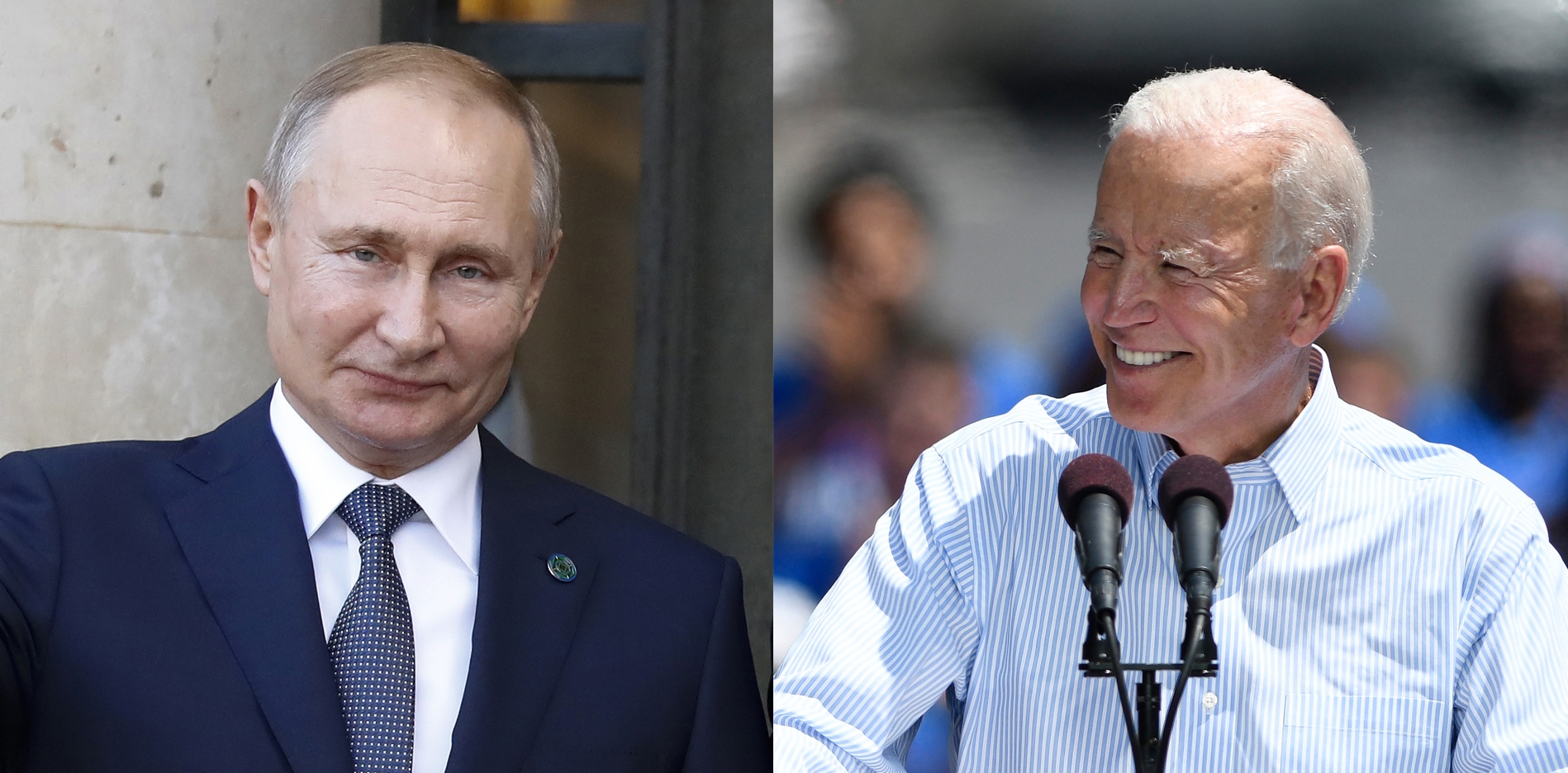US President Joe Biden and Russia’s Vladimir Putin exchanged cordial words and plotted modest steps on arms control and diplomacy but emerged from their key Swiss summit on Wednesday largely where they started – with deep differences on human rights, cyberattacks, election interference and more.
The ambassadors to Moscow and Washington are set to return, the two leaders agreed.
Advertisement
And Biden and Putin agreed to start working on a plan to solidify their countries’ last remaining treaty limiting nuclear weapons.
But their three hours of talks on the shores of Lake Geneva left both men standing firmly in the same positions they had started in.
“What will change his behavior is the rest of the world reacts to them, and they diminish their standing in the world. I’m not confident in anything.”- Joe Biden, US President
Both the White House and Kremlin had set low expectations going into the summit.
They issued a joint statement after the conclusion that said their meeting showed the “practical work our two countries can do to advance our mutual interests and also benefit the world.”
But over and over, Biden defaulted to “we’ll find out” when assessing whether their discussions about nuclear power, cybersecurity and other thorny issues will pay off.
Back-to-back news conferences by Biden and Putin after the summit also put in stark relief that getting at the root of tensions between the US and Russia will remain an enormously difficult task = including when the two sides, at least in public comments, sketched dramatically different realities on cyber matters.
Biden came into the summit pushing Putin to clamp down on the surge of Russian-originated cybersecurity and ransomware attacks that have targeted businesses and US government agencies.
But when the summit ended, it wasn’t evident that more than superficial progress had been made.
“I’m not confident he’ll change his behavior,” Biden said at a post-summit news conference, when he was asked about what evidence he saw that former KGB agent Putin would adjust his ways and actions. “What will change his behavior is the rest of the world reacts to them, and they diminish their standing in the world. I’m not confident in anything.”
Biden said he made clear to Putin that if Russia crossed certain red lines — including going after major American infrastructure – his administration would respond and “the consequences of that would be devastating,”
Putin, in turn, continued to insist Russia had nothing to do with cyber intrusions despite US intelligence evidence that indicates otherwise.
“Most of the cyberattacks in the world are carried out from the cyber realm of the United States,” said Putin, also adding Canada, two Latin American countries he didn’t name and Britain to the list.
While the US, Canada and Britain all engage in cyberespionage, the most damaging cyberattacks on record have come either from state-backed Russian hackers or Russian-speaking ransomware criminals who operate with impunity in Russia and allied nations.
Putin agreed at the summit that Russia will begin consultations with the U.S. on the matter and acknowledged that ransomware and cyberattacks are big problems.
Still, he maintained that the two countries “just need to abandon various insinuations.”
Despite the clear differences, Biden insisted that progress had been made, scolding reporters for being too pessimistic during a chat on the tarmac just before he boarded Air Force One to return home.
“There is a value to being realistic and putting on … an optimistic face, ” the President said.
Biden said the two leaders spent a “great deal of time” discussing cybersecurity and he believed Putin understood the US position.
“I pointed out to him, we have significant cyber capability,” Biden said. “In fact, (if) they violate basic norms, we will respond.”
A disconnect between the two leaders was apparent on other matters, large and small.
Putin defended Navalny’s prison sentence and deflected repeated questions about mistreatment of Russian opposition leaders by highlighting US domestic turmoil, including the Black Lives Matter protests and the 6 January Capitol insurrection. Biden was having none of it.
“My response is kind of what I communicated” to Putin, Biden said. “That’s a ridiculous comparison.”
Putin held forth for nearly an hour before international reporters after the summit. While showing defiance at questions about Biden pressing him on human rights, he also expressed respect for the US president as an experienced political leader.
Overall, the tone was more businesslike than Putin’s 2018 summit with then-President Donald Trump, who embraced some of Putin’s unlikely statements about election interference but was considered somewhat amateurish and unpredictable by the Russians.
At this faceoff, though Putin raised doubt that the US-Russia relationship could soon return to a measure of equilibrium of years past, he suggested that Biden was someone he could work with.
“The meeting was actually very efficient,” Putin said. “It was substantive, it was specific. It was aimed at achieving results, and one of them was pushing back the frontiers of trust.”











